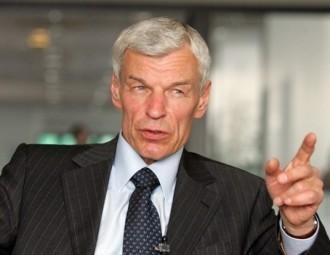The statement concerning human rights situation in Belarus was amended

On July 9, 2013 the European Parliament’s Foreign Affairs Committee approved a report on the situation in Belarus.
This report was submitted by Justas Paleckis, the EP's rapporteur on Belarus, and was assigned for the European Commission, the Council of the European Union and the European External Action Service.
Fifty-five members of the Committee voted for the document, one voted against and five abstained, reports Belsat.
In the initial version of his report Justas Paleckis, Vice-chair for the EP Delegation for relations with Belarus, said that an improvement of the situation of human rights was discernible in 2012 and the European Dialogue on Modernisation with Belarusian society launched in 2012 has had a positive impact on the development of civil society in Belarus, and offered a number of recommendations. Later Mr Paleckis insisted that his report was based on information published on the human rights website www.spring96.org, which allegedly reported a threefold decrease in the number of arrests, searches and other repressive instances in Belarus in 2012.
At the same time, the EP Rapporteur on Belarus recommends considering “the suspension of key officials from the EU visa ban list with a view to broadening the main and essential diplomatic communication channel with Belarus, also in view of the Eastern Partnership summit” and “increasing contacts with officials in order to foster openness of mind towards the EU and to enhance EU-Belarus cooperation”.
The report drew indignation among Belarusian opposition activists and human rights defenders. According to Mr Paleckis, more than 300 amendments and suggestions have been submitted with regard to the report. In one of the interviews Justas Paleckis said he regretted having said that the human rights situation in Belarus had improved.
Let us recall that Justas Paleckis visited Minsk on March 18-21 to collect data for his report that will be submitted for the vote at the European Parliament later.
After the discussion of the report on Belarus at the conference of the European Parliament Committee for Foreign Affairs the report will be also considered at a plenary session of the European Parliament in September.
-
03.01
-
07.10
-
22.09
-
17.08
-
12.08
-
30.09








































